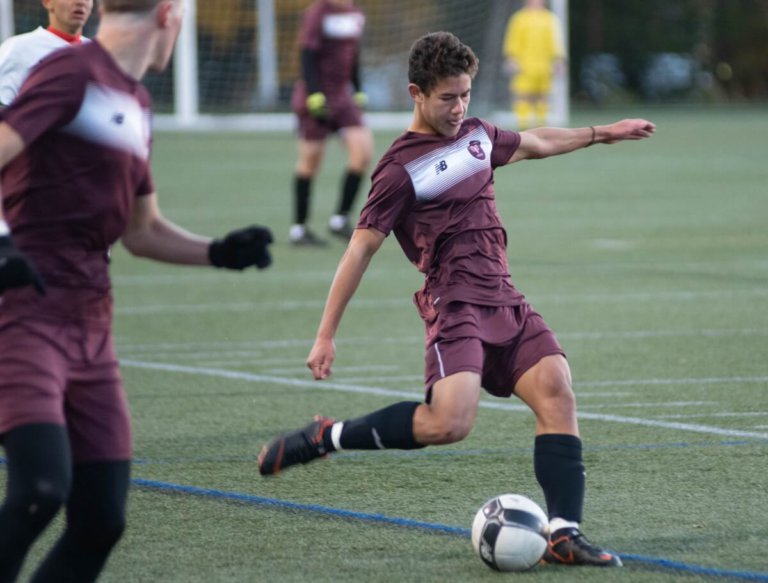
Science has shown, time and again, the many ways staying active can benefit our brains and cognition. Studies with laboratory rodents have found that more active mice doubles or even triples the number of new brain cells that might have implications for memory and delaying dementia. Physically fit people have also been found to have greater brain volume and stronger thinking abilities than those who were sedentary or have low fitness levels.
Physical fitness doesn’t only matter when we’re middle-aged, with brains sputtering with age. Keeping fit is crucial for our brain health, even when we’re young and at the peak of our health. A study on more than 1,200 young adults in the US found that the fitter they were, the healthier their white matter – the many connections between neurons and brain regions – and thus, the better their thinking skills.
“Even at a young age, physical fitness has beneficial effects not just on the body but also on brain health and brain functioning,” says the study’s author Dr Jonathan Repple, who is a psychiatrist and neuroscience researcher at the University of Münster.
On top of this, cognitive activities like memory, being attentive and concentration can take up around one-fifth of our total metabolism. A strong flow of fuel and hormones are needed for our brains to perform, learn and get rid of waste – a healthy, moving body ensures this source of energy. Other physical benefits of getting kids moving include losing weight, preventing chronic disease, developing movement habits and so forth.
Keeping our brains and bodies healthy isn’t the only perk physical activity can bring; in an increasingly competitive world, it could make all the difference in our children’s personal and professional development.
Primary school students who join co-curricular activities, including sports, gain benefits such as greater self-esteem, resilience, making new friends and boosting grades. Competing and representing the school gives these students an edge, making them more competent, improving their attendance and academic ability in class.

Worcester Academy
Beyond this, team sports develop the crucial soft skills needed to thrive in an increasingly competitive world. The World Economic Forum’s Future of Jobs report, concluded that “human” skills like originality, initiative and critical thinking are likely to increase in value as technology and automation advances. LinkedIn research concurs with this, stating that the top five soft skills employers demand now are creativity, persuasion, collaboration, adaptability and time management, the very same skills fostered through competitive team sports.
Here are four schools that excel in giving students a well-rounded education, academically, personally and physically:
At Worcester Academy, your child can realise their full academic and athletic potential. Holistic education lies at the root of this private co-ed boarding school for grades 6 to 12 and postgraduates. Studying here is about much more than getting top grades – it’s about personal development.
With its intensive athletics programme and dedicated coaches, Worcester Academy is able to do just that and more. As a member of the New England Preparatory School Athletic Council (NEPSAC), students here compete against the top tier of New England prep schools.
Both male and female students throughout the Middle and Upper Schools have over 50 teams across 17 sports to choose from, while WA boasts of a whopping 60 percent student body participation. Middle School athletics include football, hockey, swimming, wrestling, baseball, lacrosse, and tennis; while Upper School athletics also include volleyball, ice hockey, skiing, golf, track, and more.
Worcester Academy athletes even shine at collegiate level, with one student excelling in Track & Field at Harvard, another competing in Ice Hockey at Holy Cross, another playing Football at Syracuse – and that merely scratches the surface of the Academy’s athletic success. After all, this is an institution that values sportsmanship and encourages healthy competition.
The Fessenden School is exemplary for its holistic approach to education – academics, athletics and personal development combine to prepare students for future success.

The Fessenden School
The all-boys school’s learning style is student-centered and teacher-supported, and this extends beyond its classrooms into its athletics programme. Whether they’re in middle school or upper school, there are various opportunities for every boy. From recreational squads to competitive, championship-winning teams, they can make their pick from more than 16 team and individual sports at the interscholastic, intramural and recreational levels in the fall, winter and spring. The diverse athletic offerings at Fessenden include basketball, baseball, cross-country, football, soccer, tennis and more.
Coaches focus on sportsmanship and skill development over a “win-at-all-costs” mentality. As teachers, administrators or dorm parents, Fessenden School coaches have acute knowledge about their students’ development, enabling them to tailor individual support for each. Ultimately, the goal of this integrated approach to education is to produce students who not only thrive at top secondary schools, but also successfully navigate the world beyond.
To learn more, request and Admissions Packet here!
The philosophy of this private school in Dorset is to develop habits, interests and enthusiasms that stay with their pupils long into the future. Its sports programme is designed to carry this philosophy out for every single boy at the school, not just for elite sportsmen.
The aim of sports at Sherborne is to form habits of healthy living, shaping a commitment to regular exercise and reaping the benefits of healthy competition. The school offers a diverse range of sporting activities, from traditional sports like rugby, football and hockey, to activities like squash, fives, clay pigeon shooting and golf.
There are more than 17 rugby teams competing regularly; whereas for football, as many as 14 teams across age groups are regularly field. Its hockey team play in the First XI in England Hockey’s National Championship. Some of the country’s best athletes are graduates of Sherborne’s sporting teams which record regular victories, a testament to the effectiveness of its athletic approach.

Sherborne School
Founded in 1935, Millfield School offers a world-class education that helps see children through those critical formative years. Broad and balanced, its sports programme is tailored to the individual, setting up pupils for lifelong involvement in sports and physical activity.
At this British private school, students are encouraged to take part in its comprehensive range of sports beyond the minimum 3.5 hours within the PE curriculum. There are approximately 60 regular school teams each term and pupils can try out various activities through its extensive clubs programme. This means a pupil could climb or sail on a Wednesday afternoon yet still train and play team sports on a Saturday.
Many Millfield pupils participate in various sports sessions at least once every day, and younger pupils or later developers aren’t excluded. There are separate ‘B’ team tournaments for them to take part in so they receive the same player developmental opportunities as more physically mature peers and senior coaches.
*Some of the institutions featured in this article are commercial partners of Study International
Liked this? Then you’ll love…
Worcester Academy: Where students flex their academic and athletic prowess
The Fessenden School: A day in the life of Connor O’Keefe, a student from Bermuda







